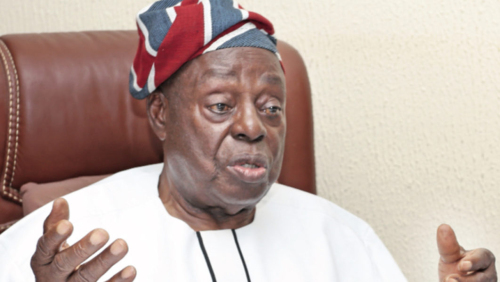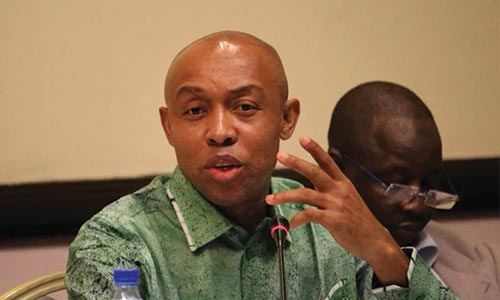The E-Voting System Vis-A-Vis Nigeria’s Electoral Challenges

THE National Assembly recently passed the Electoral Act Amendment Bill 2021 wherein, among others, electronic voting and transmission of results were given a nod of approval, thereby empowering the Independent National Electoral Commission to determine the mode of conduct of elections and transmission of results. Consequent upon its passage, the Bill was then forwarded to President Muhammadu Buhari for assent. However, the 30-day statutory period for assent as provided under Section 58(4) of the Constitution of the Federal Republic of Nigeria, 1999 (as amended) has lapsed. While the President has now expressly withheld his assent to the Bill, a shadow of uncertainty has been cast over the Bill regarding whether the National Assembly will exercise its powers to override under Section 58(5) of the Constitution. The section provides that “Where the President withholds his assent and the Bill is again passed by each House by two-thirds majority, the Bill shall become law and the assent of the President shall not be required”.
Back in 2018 when the National Assembly presented a Bill for the amendment of the Electoral Act to include the electronic transmission of votes, the President reportedly noted that the time of presentation of the Bill was too close to the 2019 general elections and thereby withheld his assent. The recent withdrawal of the President to assent the Bill which was presented over a year before the 2023 general elections is highly reflective of the current administration’s stand towards electronic voting and transmission of results.
Electronic voting (e-voting) is a comprehensive system of casting, counting and transmission of votes through electronic means. It may involve both the process of casting and counting of votes or may relate only to the process of counting. E-voting technology includes punched cards, optical scanned voting systems and specialised voting cubicles or kiosks including self-contained direct recording electronic voting systems popularly referred to as DRE. The term E-voting may also refer to transmission of ballots and votes through telephones, private computers or the internet. However, the Nigerian electoral problems transcend a consideration or implementation of the e-voting system.
Corruption and what is normally referred to as money politics became manifest during the period when the Electoral College system of voting was adopted in Nigeria. Final colleges were responsible for the election of persons to the House of Assembly. Candidates and their supporters bribed the final college members to influence the pattern of voting. Nwoke, a candidate to the Eastern House of Assembly in 1953 narrated his observations at the meeting of a final electoral college as follows: “On the morning of the election, some leaders of the clan or agents would wear special large over flowing native robes with specially designed large pockets. These pockets would be filled with folded currency notes and time carrier (sic) rolled luxuriously to the polling station. He would take a stand directly opposite the voters but on the other side of the fence which was built to keep off intruders. He would greet him by shaking one of the folded notes into his hands and bidding him good by and naming the candidate, would ask him to call out the next on his bench. That process was repeated until the whole people were met and instructed.”
Corruption and money politics prompted the introduction of the direct election system which replaced the Electoral College system. This substantially reduced corruption and money politics initially but did not eliminate them. The big disadvantage of the direct election system was that it increased the financial burdens of candidates as candidates had to undertake widespread campaigns to win votes. This added expenditure has also played a role in the corruption that has bedevilled our electoral system.
It is in realisation of the importance that the electioneering process plays in the fortunes of any country that much attention is always given to the electoral process itself. In the quest for the perfect election, Nigeria has experimented with different balloting system including the secret ballot system with some modifications. In the 1993 Presidential elections, voters exercised their franchise by queuing behind the photograph of their choice. It was this system that produced the late Aare MKO Abiola as the winner of the election which is still widely regarded as the best in the history of Nigeria as a nation.
However, since that system did not guarantee the anonymity of votes resulting in voter intimidation in some instances, we have since gone back to the open secret ballot system. Under this system a registered voter presents himself at the polling station and undergoes the process of accreditation in the open. After this he is issued a ballot paper with which he exercises his franchise and drops same in a transparent ballot box. After the close of voting, the ballot box is opened, ballot papers sorted and counted, and the results of the polls announced.
As we have subsequently learnt, this system is not without flaws. There are always instances of ballot box snatching, ballot box stuffing, inflation of votes, thuggery, violence etc. The result is that the Election Petition Tribunals are usually inundated with a deluge of petitions filed by dissatisfied candidates. It is on record that some of the petitions filed after the April 2007 elections were concluded just a few months to the next general election in 2011. This informed amendments to the Constitution to set a time limit for the hearing of election petitions. It was in this context that some Nigerians called for the introduction of e-voting. Such was the clamour in some quarters for the introduction of the system of voting that it attracted an appreciable level of debate before both chambers of the National Assembly during the passage of the Electoral Act 2010 itself.
It is not certain that the implementation of the e-voting system is a cure-all for the electoral maladies in Nigeria. The advent of technology which revolutionised several sectors, including the banking sector, had not been without glitches in the past. For instance, the print and electronic media are daily awash with the complaints of bank customers whose deposits have been siphoned by some unscrupulous elements who were able to infiltrate the security system of some banks who have embraced the electronic system of banking. Are we therefore ready for a situation in which the outcome of major elections, including governorship and presidential elections, are determined not by the electorate who cast their votes at the polling station but by some computer savvy individual who in the comfort of his bedroom hacks into the system and in the process determines the fate of an entire nation?
It must be noted that challenges of the Nigerian electoral system is not entirely related to the accuracy of the process of voting and collation. It is more of an attitudinal problem on the part of the electorate and the politicians who will stop at nothing to attain political power. It also has to do with our constitutional make up which has not only made elective office too attractive but has also concentrated power at the centre to the detriment of the states which make up the federation of Nigeria. The average Nigerian politician, in his quest to attain political power, does not believe in the articulation and propagation of his programmes or manifesto to the populace prior to election. He is only interested in securing votes by any means necessary. To his end, he would earmark millions of naira to buy votes on the day of election. Where this fails, he would resort to his army of thugs who will without a thought to the consequences of their action unleash violence through acts of brigandage including snatching and stuffing of ballot boxes.
The average voter, on the other hand, has over time come to believe that his vote does not really matter in the eventual scheme of events. It is his conviction that no matter how the votes, the candidate who is prepared to spend the greatest amount of money and unleash the most violence will eventually be declared the winner of the election. So, rather than vote according to the dictates of his conscience for a candidate who might after all end up losing the election, he would rather sell that vote to the candidate who is willing to pay the most for it. The resultant effect is that the politician who is eventually elected into public office in such circumstances will not harbour any feeling of duty or responsibility to the electorate.
The way forward
Beyond the implementation of the e-voting system, the Nigerian government must demonstrate that this is a country in which Nigerians can and should place their faith. The interest of the citizenry must be of paramount consideration in the formulation and execution of any governmental policy or project. Conversely, Nigerians must realise the importance of active, massive participation in the electoral process. Whether through the e-voting system or the secret balloting system, eligible Nigerians must participate en masse in the forthcoming elections in order to express their mandate.


